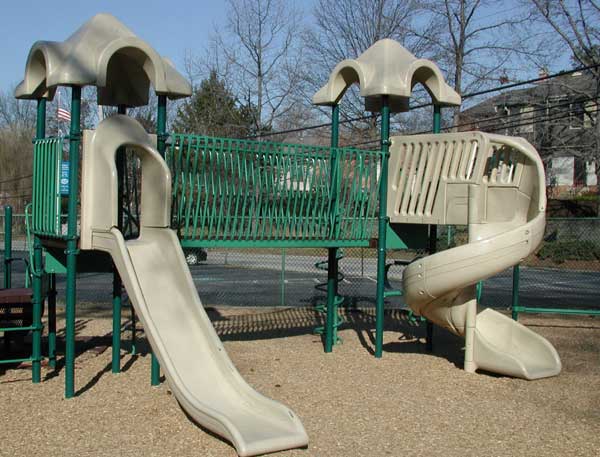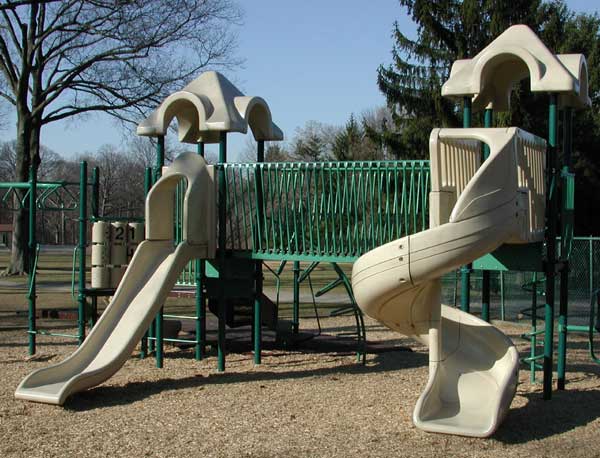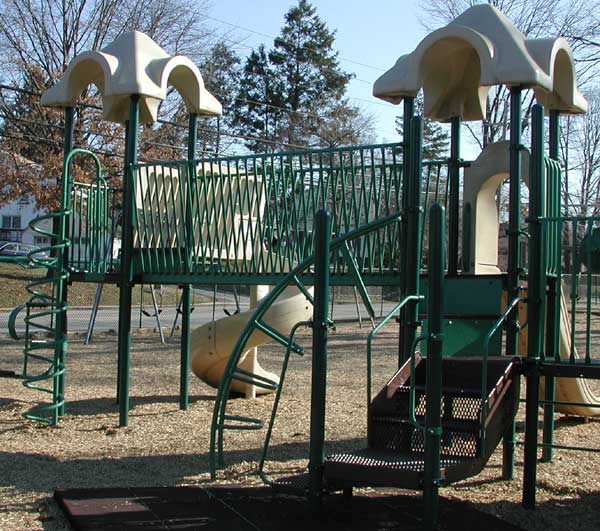Building Two-Way Bridges:
A Conversation about Gender and Science
Sponsored by The Greater Philadelphia Women's Studies Consortium
 On February 21, 2002, the Greater Philadelphia Women’s Studies Consortium hosted a seminar for faculty in the sciences and women’s studies from a dozen area colleges and universities. Held at Bryn Mawr College, the discussion of areas of shared interest was facilitated by Anne Fausto-Sterling. This website is provided by the Center for Science in Society at Bryn Mawr College and Serendip to faciliate continuing conversation about issues related to gender and science.
On February 21, 2002, the Greater Philadelphia Women’s Studies Consortium hosted a seminar for faculty in the sciences and women’s studies from a dozen area colleges and universities. Held at Bryn Mawr College, the discussion of areas of shared interest was facilitated by Anne Fausto-Sterling. This website is provided by the Center for Science in Society at Bryn Mawr College and Serendip to faciliate continuing conversation about issues related to gender and science.
 A summary of the seminar discussion is provided below. All participants are warmly invited to add their corrections and comments, using an on-line forum area. They and others are also encouraged to use the forum area for further reflections and to provide additional resources. For additional information, contact Anne Dalke or Paul Grobstein.
A summary of the seminar discussion is provided below. All participants are warmly invited to add their corrections and comments, using an on-line forum area. They and others are also encouraged to use the forum area for further reflections and to provide additional resources. For additional information, contact Anne Dalke or Paul Grobstein.

Summary of Seminar Discussion
(Prepared by Anne Dalke)
It was clear, as we introduced ourselves to one another, that "people came with different jobs to do," a range of concerns which could be grouped into three different areas. We brought with us
- questions about the meager participation of women in science classrooms (especially the physical sciences, computer sciences and math); this is the "women in ---" question;
- questions about science pedagogy (matters of cognitive values and approach that involve reconceptualizing what sciences is and how it works–which will eventually change the kinds of students who go into it, and so affect (1) above;
- questions about poor communication between the sciences and women’s studies programs, and a desire for new strategies for building bridges between the two (this includes an historical awareness of both the impoverishment of women’s studies programs which are lacking in science and the hostility of the sciences to feminist critiques).
We gave attention to these topics in reverse order, focusing first on the need for curriculum development and interdisciplinary alliances among the humanities, social sciences and sciences.
We asked these questions:
What does it mean to "study science"?
What would it mean for women’s studies if the knowledge of science became part of our programs?
What knowledge is it important for our students to have, and why? (Answering this question will help us know what kinds of courses we need, whether they should be required, etc. etc.)
How helpful is the distinction between knowledge ABOUT science and knowledge OF science? (Do we want to teach our women’s studies students how to DO science well, or do we want them to bring an understanding of science to historical and sociological questions?) Do we want them to learn to look at science from the inside or the outside? (How we answer this question will affect the willingness of both our students and scientists to engage with feminism; the interest of scientists will be enhanced if the consensus is that what needs to be taught is more science "from the inside.")
How false is that dichotomy? (Students cannot understand the critiques of science if they don’t understand science; lacking the latter, they lack also the tools for the former.)
We made these claims:
- --Science is "another way of seeing," a systematic approach to gaining knowledge that is not shared by other areas of human inquiry. Science demands that experiments be replicable, that all observations be make public and accepted as provisional until other similar observations can be made. What distinguishes science is this requirement of the reliability of the descriptions provided; if phenomena are not "stabilized" then they are not accepted as knowledge. This epistemology for creating new facts differs from procedures in history or literature. (Although philosophy of science has critiqued this process: no experiment is ever exactly replicable; each is altered by its particular context.)
We want to give our students the tools they need to be effective political actors in the world; in order to do that, they need to understand how science works. Failing to teach them that, we are failing the traditional political mission of women’s studies programs.
Contextualizing science is also essential for our science majors; failing to address ethical issues raised by the practice of science is to fail as science educators. Social questions are not just "hooks" to "real science," but rather deeply inform the way in which science is done.
We need to provide our students both with the history and sociology of science and with hands-on experience in doing science. As a way of learning how science is constructed, they need to ask their own questions, gather information directly, do their own research. They also need to be taught how to read primary texts in the sciences. Similar initiatives are needed in the social sciences and humanities as well (how many history students conduct original research projects?).
We need to teach our students science content, too, so that they can understand and learn to engage critically (for instance) with what they read in the paper regarding social and environmental issues. We are facing the "great and powerful Oz" problem in education: rather than just learning facts, our students need to be invited to "draw back the curtain" to see the messy, historical process of "how Oz operates," not just the end products of research done by others. The same approach can be useful in fields such as Religious Studies, where students can be invited to "forget what they were told, " to make–and trust!--their own observations about what they read. This is a means of democratizing access.
Inviting students into the process of gathering their own data
- can be boring and tedious (they may be disinterested because particular sets tell no "big story," but only one of very limited significance, and so it is difficult to convince them that making such minute observations is worth while);
can also be an way of enticing them into "an original relation w/ the universe," by inviting them make their own observations, to be open to new discoveries, rather than being guided and so limited by those of others.
Such pedagogical strategies mark directions in which science education is already moving in this country: driven by an increasing concern that students are not really engaging with material, introductory science courses are being re-designed to offer them direct experiences with things themselves, to engage them in the scientific process.
Asking scientists to reconceptualize how we teach in ways we have not been trained to do is asking us to rethink not only how we make sense of ourselves in the classroom but in our disciplines and in our lives. This is no more than we ask our students to do–but it’s scary and nervous-making. We need to give ourselves a break, as well as give one another a hand up in the process.
We need to be more reflective about the relation between "inside" and "out"; people who get inside forget the feeling of being outside.
We can convince our colleagues to engage in these matters in a variety of ways: by example, by supplying reading lists, by offering paired courses or the possibilities of team teaching, by (insidiously!) teaching our students in ways that will provoke new questions in others’ classrooms.
We offered one another these strategies for teaching "science with a different edge":
multiple forms of team teaching
introducing contextualized science in freshman seminars (following the national trend for small quirky introductory experiences)
integrating the history of science, the development of scientific ideas, and lab experiences into core curricula in Western Civilization
choosing our own data sets (not abstract, but gender- and race-specific, drawn from the daily newspaper, inviting students to consider "where the numbers come from"; it is possible to teach "Statistics for Social Change");
using journal writing to teach math
including science in political studies and in courses with an international focus
requiring paired courses in lab science and analysis of the scientific process
rethinking larger curricular arrangements: how much "straight science" needs to be included to qualify any given course for the major? how many "science-related" courses might count toward any science major?
interviewing our students, who are already taking courses in a number of different divisions, and so already integrating the kinds of knowledges that we conceptualize as separate; let’s find out how they are doing it!
We ended with a brief consideration of the paucity of women in new fields such as computer science, which are struggling particularly with matters of gender equity. What do we need to understand about the history of the engagement of different kinds of people in different courses of study, and about the psychology of such engagements? (Why might certain students be drawn into programming, for instance?) How can we alter cultures which do not seem welcoming to many women students? How create an atmosphere conducive to learning, how intervene in peer-based hostility both in classrooms which teachers can somewhat control (!?) and in 24-hour open environments?
Home
| Calendar | About
| Getting Involved
| Groups | Initiatives | Bryn Mawr Home | Serendip Home
Director: Liz McCormack -
emccorma@brynmawr.edu
| Faculty Steering Committee
| Secretary: Lisa Kolonay
© 1994-
, by Center for Science in Society, Bryn Mawr College and Serendip
Last Modified:
Wednesday, 02-May-2018 10:51:27 CDT
 A summary of the seminar discussion is provided below. All participants are warmly invited to add their corrections and comments, using an on-line forum area. They and others are also encouraged to use the forum area for further reflections and to provide additional resources. For additional information, contact Anne Dalke or Paul Grobstein.
A summary of the seminar discussion is provided below. All participants are warmly invited to add their corrections and comments, using an on-line forum area. They and others are also encouraged to use the forum area for further reflections and to provide additional resources. For additional information, contact Anne Dalke or Paul Grobstein. On February 21, 2002, the Greater Philadelphia Women’s Studies Consortium hosted a seminar for faculty in the sciences and women’s studies from a dozen area colleges and universities. Held at Bryn Mawr College, the discussion of areas of shared interest was facilitated by Anne Fausto-Sterling. This website is provided by the Center for Science in Society at Bryn Mawr College and Serendip to faciliate continuing conversation about issues related to gender and science.
On February 21, 2002, the Greater Philadelphia Women’s Studies Consortium hosted a seminar for faculty in the sciences and women’s studies from a dozen area colleges and universities. Held at Bryn Mawr College, the discussion of areas of shared interest was facilitated by Anne Fausto-Sterling. This website is provided by the Center for Science in Society at Bryn Mawr College and Serendip to faciliate continuing conversation about issues related to gender and science. 